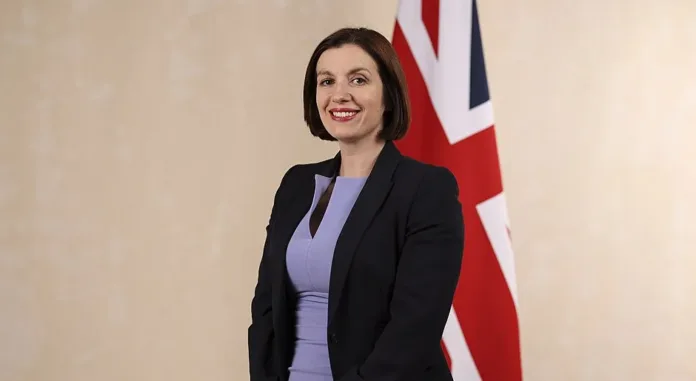Bridget Phillipson takes early lead as six Labour MPs battle to replace Angela Rayner
Bridget Phillipson has emerged as the frontrunner to replace Angela Rayner as Labour’s deputy leader, just days after Rayner’s dramatic resignation over a tax scandal.
The Education Secretary surged ahead of her rivals after securing 44 public nominations by Tuesday evening, positioning herself well in a tight contest that will decide not only the party’s deputy but also signal the political direction Labour is taking under Sir Keir Starmer.
Close behind her is Lucy Powell, the former leader of the House of Commons, who has attracted 35 backers. Bell Ribeiro-Addy, representing the party’s Socialist Campaign Group, has drawn support from eight MPs. Senior figures Dame Emily Thornberry and Paula Barker have collected seven and three nominations respectively, while Housing Minister Alison McGovern trails with just two.
Candidates need the backing of 80 Labour MPs by 5pm on Thursday to stay in the race. The short timetable has sparked criticism, with some arguing that such a rushed process leaves little room for genuine debate.
The contest comes at a delicate moment for Labour. Rayner resigned last week as deputy leader and housing secretary after admitting she underpaid tax on the £800,000 sale of a flat in Hove. Though she insisted the mistake was not intentional, the episode raised questions about accountability at the very top of the party.
Embed from Getty ImagesFor Phillipson, the race presents both a challenge and an opportunity. Speaking at the TUC conference, she pledged to deliver Rayner’s flagship Employment Bill “in full—no ifs, no buts”. Her supporters view her as a disciplined operator who will work in lockstep with Starmer’s government. First elected in 2010 for Houghton and Sunderland South, she became shadow education secretary in 2021 and took the cabinet post when Labour entered government in 2024.
Describing herself as a “proud working-class woman from the North East”, Phillipson framed her candidacy as a fight against Reform UK. “I’ve shown we can beat Farage in the North East while staying true to Labour’s values,” she told delegates.
Lucy Powell is seeking to position herself as the unifying candidate, emphasising her Manchester roots and promising to “bring together all parts of the party”. Ousted from government only last week, she said encouragement from colleagues had convinced her to stand.
Ribeiro-Addy, who has consistently criticised Labour’s stance on welfare and Gaza, warned that the leadership contest risks shutting out grassroots voices. She argued that the compressed timetable is “absolutely unfair” and insisted Labour must confront “what’s gone wrong” rather than paper over cracks.
Dame Emily Thornberry also struck a defiant note. Denied a ministerial role by Starmer, she now chairs the Commons foreign affairs committee. In announcing her candidacy, she promised to be a voice for members, unions and constituents—not simply “nod along”. Her platform includes welfare, Gaza, and calls for a wealth tax.
Paula Barker warned Labour risks losing touch with its traditional base if it fails to reflect geographical and political diversity, while McGovern vowed to take on “the dark forces of right-wing populism”.
The battle for deputy leader is about more than personalities. It will shape the balance of Labour’s leadership at a time when the government faces pressure over its handling of welfare, foreign policy, and growing populist movements.
Party members will ultimately decide the outcome, with ballots opening on 8 October and closing on 23 October. The winner will be declared on 25 October at Labour’s annual conference.
For now, Bridget Phillipson holds the advantage. But with five rivals eager to challenge her dominance, Labour’s internal battle is only just beginning
